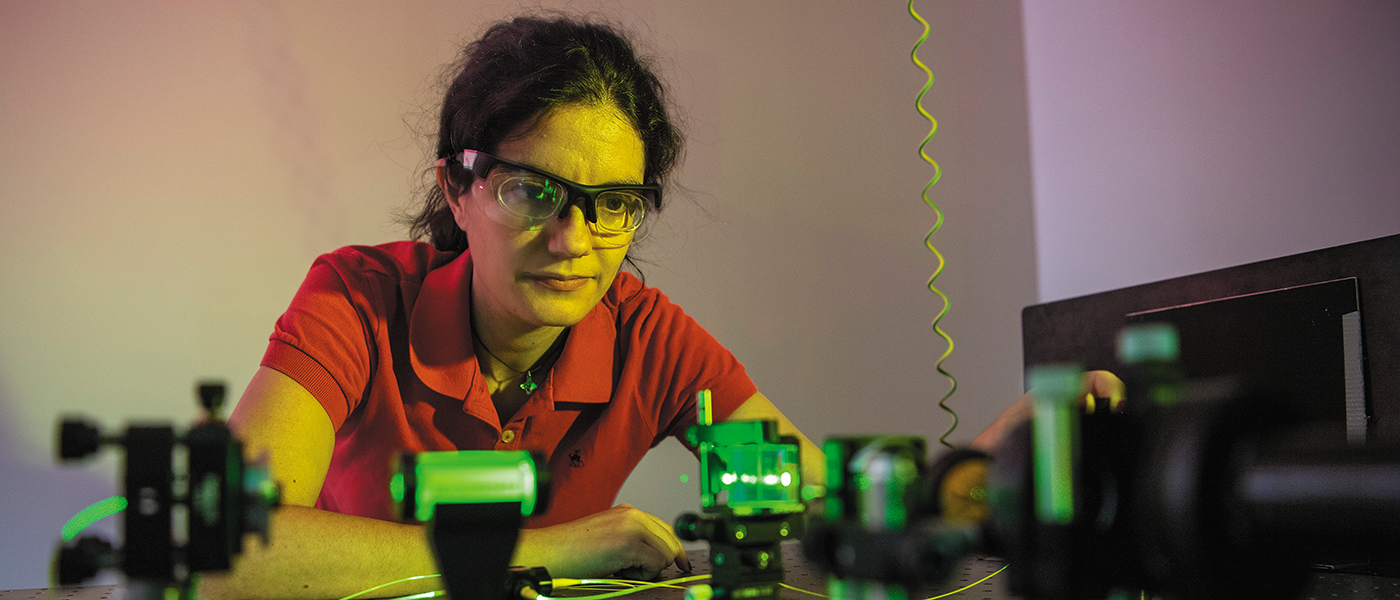UN SDG 5: Gender equality
Achieve gender equality and empower all women and girls
Our research

The Re-Framing the Picture report is published by the Gender Equity Analysis project, a pioneering study of gender equity policy in the film industries of Germany, the UK and Canada.
Using comprehensive quantitative analysis of industry data, policy analysis and interviews with industry experts, the project drives meaningful change and fosters inclusion in the global film sector. Innovative social network analysis of industry data compared current networks and modelled ‘what if’ scenarios. The report also includes analysis of the 34 film industries supported by the Eurimages fund.
The project team leads include academics from Film University Babelsberg KONRAD WOLF, Germany; University of Glasgow; University of Alberta, Canada; and University of Rostock, Germany; in addition to a researcher from Deakin University, Australia.
This work was supported by the Economic & Social Research Council; the Deutsche Forschungsgemeinschaft (DFG – German Research Foundation) under Sixth Open Research Area for the Social Sciences; and the Social Sciences & Humanities Research Council.

The Women Researcher’s Enterprise Network is at the forefront of championing women-led research and innovation to ensure the potential for real-life societal impacts can be fully realised.
Learning & teaching

The EPSRC-funded Centre for Doctoral Training in Diversity-Driven Mission-Led Research is a new doctoral training opportunity at the University, focused on bringing together diverse teams to tackle interdisciplinary, mission-driven challenges at the forefront of research. This training provides an opportunity for those keen to use their STEM knowledge to make a difference, and carry out postgraduate research in a different way. It invites individuals to break barriers and redefine what is possible. Our innovative Centre for Doctoral Training model prioritises diversity, creating an inclusive space for varied talents to produce transformative interdisciplinary research.
University operations

WREN is the Women Researcher’s Enterprise Network at Glasgow. It aims to be at the forefront of championing women-led research and innovation to ensure the potential for real-life societal impacts can be fully realised.
Women make up only 30% of leadership roles in the UK; this network will be a stepping stone towards empowering women to help create a more equal society. Our programme hosts a series of speakers, including women researchers who have founded companies and those who have commercialised their research via other mechanisms. The programme also aims to provide a principled space which thrives on respect, discussion, support and collaboration, where opportunities can be showcased and training support provided.
This network is not exclusively for researchers who intend to set up a business; the intention is for women researchers to join the network and have the chance to consider ways in which their research might be developed into innovative products or services of use to industry or wider society.
The Menopause & Hormonal Changes Policy represents one of the University’s initial steps in raising awareness of menopause and hormonal changes, reducing the stigma around discussing these experiences, and encouraging colleagues to request adjustments and/or support.
The policy includes evidence-based resources created by Menopause Information Pack for Organizations (MIPO), a research-based, free, open-access suite of resources to help workplaces support menopausal transition. MIPO’s UK-based lead is Professor Kat Riach, Adam Smith Business School. University of Glasgow.
Civic engagement

The Ada Scotland Festival celebrates its fifth year of championing gender balance in tech and computing, providing inspiration for our young people and building a stronger, fairer, more diverse workforce of the future.
The festival was founded in 2020 with sponsorship from the Scottish Informatics & Computer Science Alliance, Morgan Stanley and VeryConnect, as well as support from the University's School of Computing Science, Edinburgh Napier University and dressCode.
Having been established during the pandemic, the festival was originally delivered entirely online. It has since grown to include in-person events in Glasgow, Edinburgh, Dundee, Aberdeen, Inverness and the Borders. The 2024 Festival was sponsored by Barclays and ran from 1-11 October at venues across Scotland, as well as online.
Dr Matthew Barr, School of Computing Science, is the Festival’s director and Anna Doyle, Computing Science Administration, is Festival manager.



















